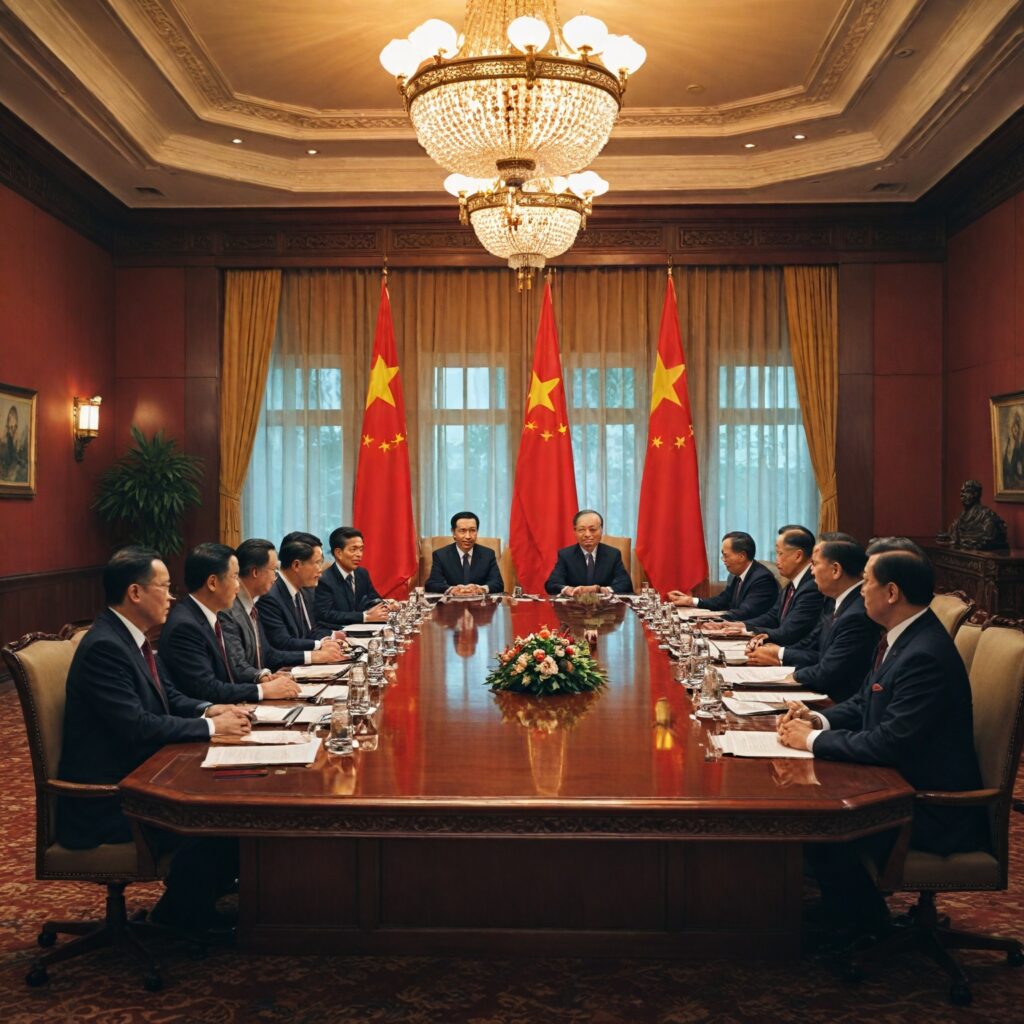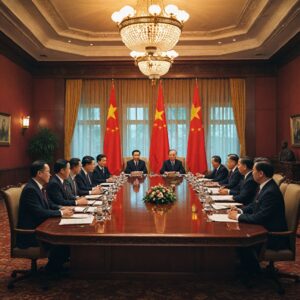
Highlights:
– China warns of retaliation against countries cooperating with the U.S. against its interests in the trade war.
– China imposes levies on American goods and emphasizes opposition to “unilateral bullying.”
– Experts predict continued U.S.-China ties despite tensions, with China replacing top trade negotiator amid WTO lawsuit.
China’s Warning of Retaliation in Trade War Tensions
Amid escalating trade tensions between the United States and China, Beijing has issued a strong warning against countries that collaborate with the U.S. in a manner that undermines China’s interests. The Chinese Ministry of Commerce emphasized that any agreement made at China’s expense would be met with reciprocal countermeasures. As the trade war intensifies, China’s stance reflects its resolve to defend its interests in the face of increasing pressure.
This warning comes as the U.S., under President Donald Trump’s administration, reportedly plans to use tariff negotiations to isolate China and limit its global influence. The recent pause on tariff increases for other countries while imposing higher duties on Chinese goods reflects the shifting dynamics in international trade. The Chinese Ministry of Commerce characterized the U.S. actions as an abuse of tariffs and unilateral bullying, signaling a deepening rift between the two economic powerhouses.
The Growing Impact of U.S.-China Trade Conflict
China’s retaliatory measures against U.S. tariffs, including imposing levies on American goods and restricting critical minerals exports, underscore the gravity of the trade conflict. Despite speculations about a potential deal in the near future, analysts remain cautious about the prospects for a resolution between the two nations. President Xi Jinping’s recent visits to Southeast Asian countries signal China’s efforts to strengthen regional partnerships and oppose tariffs and unilateral bullying on a broader scale.
With China replacing its top international trade negotiator and escalating its legal challenge against the U.S. at the World Trade Organization, the trade war’s repercussions continue to unfold. The ongoing trade tensions have also prompted discussions about the possibility of decoupling between the U.S. and China, although experts highlight the intertwined nature of their economies. Amid these developments, voices calling for a more cooperative approach towards addressing the trade war are gaining momentum.
Implications and Future Outlook
The reshuffling of key trade officials in China and the country’s legal actions against the U.S. underscore the seriousness of the situation and the complexities involved in the U.S.-China trade dispute. While prospects for a comprehensive resolution remain uncertain, the implications of prolonged trade tensions extend beyond economic realms. The interdependence between the U.S. and China underscores the need for nuanced strategies to navigate the changing landscape of international trade.
As the trade war evolves, stakeholders worldwide are closely watching the developments and their potential consequences on global trade dynamics. How will other countries respond to the escalating tensions between the U.S. and China? What strategies can promote a more cooperative approach to resolving trade conflicts on a multilateral level? The ongoing developments in the trade war underscore the need for proactive dialogue and collaborative solutions to mitigate its far-reaching impact.
In conclusion, the escalating trade tensions between the U.S. and China continue to reverberate globally, with both nations taking firm stances to defend their interests. The evolving dynamics of the trade war highlight the complexities of international trade relations and the imperative for constructive engagement to address underlying issues.
Editorial content by Harper Eastwood

















